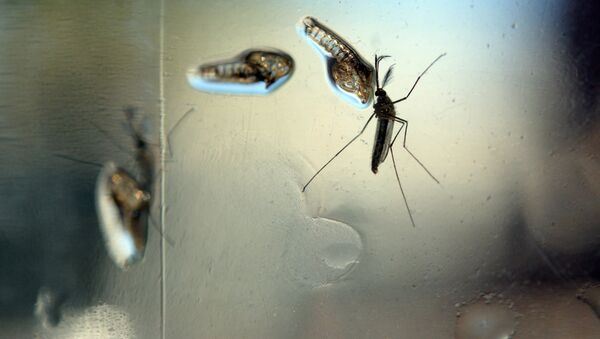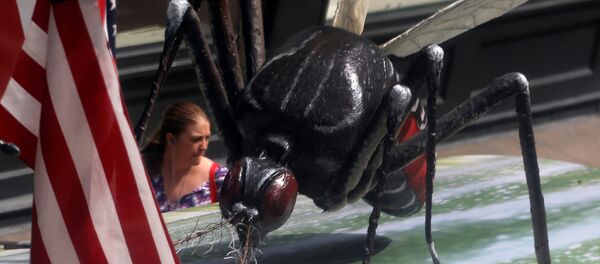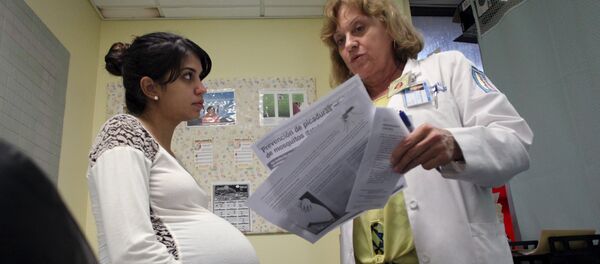WASHINGTON (Sputnik) — Florida Governor Rick Scott announced the discovery of 10 new Zika cases on Monday, which are in addition to four he announced on Friday.
"It’s possible the mosquitos are resistant to the insecticide being used in the area," Frieden stated.
Frieden added resistance testing is starting to see if that’s the case, but the testing can take at least a week or more.
Another reason why mosquito killing efforts weren’t working as well as expected, Frieden suggested, could be because the breeding location hasn’t been discovered yet, even though it’s within a 150 meter area.
The current Zika outbreak started in Brazil in the spring of 2015.
It is transmitted by daytime-active mosquitoes. While the virus does not cause serious complications in adults, it can cause severe brain defects and microcephaly in newborns.




